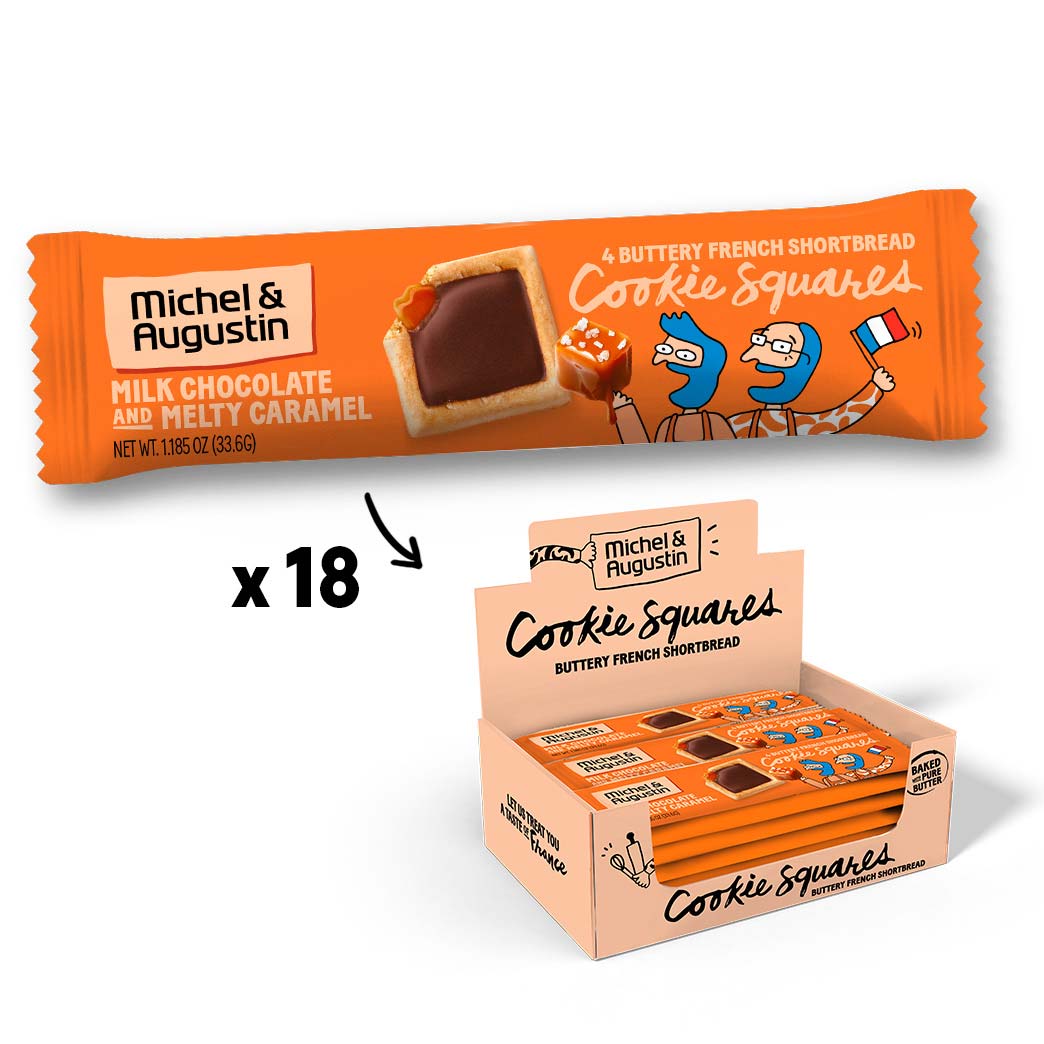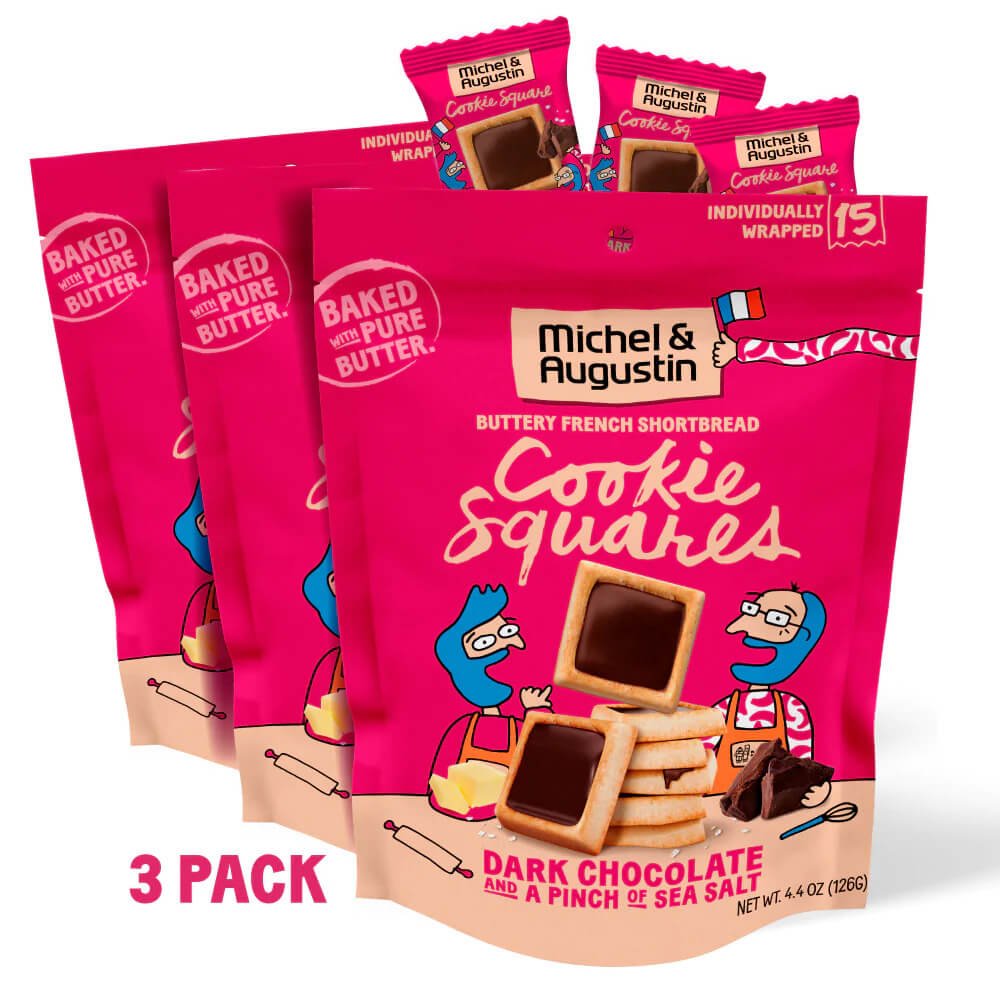
Individually wrapped and perfectly portioned, our cookies are a pretty ideal treat or on-the-go snack in anyone’s busy day. But what exactly is it about cookies in general that makes them so irresistible? Let’s dive into the cookie science and characteristics that make them so delicious.
[Spoiler: it involves a lot of butter!]
Ingredient 1: The Role of Sugar
All cookies have some sort of sweetener in them, but choose carefully: the type you use will alter the taste and texture of your cookies. Honey, brown sugar, cane sugar - they’ll all have wildly different effects on your cookie taste, texture, and nutritional value!
We don’t use any GMOs or artificial ingredients in our Cookie Squares. Instead, we use real ingredients that you would find in your home kitchen, including cane sugar and regular white sugar. We also make sure we add just the right amount so the cookies aren’t too sweet.
How does sugar impact cookie science? More than just a sweetener, sugar plays a key role in the crispness of cookies and their color. Add brown sugar and you’ll get a softer and more cake-like cookie because it melts and caramelizes faster than white sugar. It’s also slightly more acidic, reacting with baking soda (a base) to get the cookies to slightly rise. Add white sugar and you get a thinner, crisper cookie, like our tasty original shortbread cookie, which you can make right in your kitchen!
Ingredient 2: Butter is Better (duh!)
One of our main cookie-baking principles: butter is better. Cookie science agrees! Butter is a big component in the taste of baked goods like cookies (and even in our savory cheese crackers - which are cookie-like in texture). Butter adds to their overall flavor, brings more richness and creates depth to the tasting experience.
That’s not butter’s only role in the science of cookie baking: it also impacts cookie characteristics, including its texture and structure. Butter melts at lower temperatures than other fats like oils. This allows cookies to spread evenly while baking and deliver perfectly crispy edges and an irresistible center.
Ingredient 3: A Pinch of Salt
Though sweetness is a defining characteristic of cookies, sugar isn’t the only thing that makes them so delicious. Salt plays an important role in cookie science.
Salt is also known as a natural flavor enhancer – and not just of salty flavor! It balances the flavor of caramelized sugars. Without it, cookies would taste overly sweet and flat. The same goes for cookies with chocolate. Salt not only accentuates the sweetness of chocolate but suppresses its bitterness and enhances its flavor. That’s why our Dark chocolate with a pinch of sea salt cookies are so satisfying! If we say so ourselves ;)
Ingredient 4: Balance of Flour
Flour may not seem like it would have any effect on cookie science, but it’s more important than you might think. Both the amount of flour and type of flour will impact the texture, taste and, most importantly, the density of your cookies.
Have you ever added too much flour to cookie dough? A higher flour-to-butter ratio results in a denser, and often drier, cookie. Don’t add enough flour, and cookies end up being thinner and more spread out. That’s because there’s not enough balance between the dryness of flour and the moisture (usually from butter).
Your type of flour also matters in the science of cookie baking. Cake flour, though soft, might be too tender and fall apart. Other flours like bread flour may make your cookies too chewy. That’s why many bakers will use flours like the versatile all-purpose flour (bleached or unbleached) or even wheat flour.
A lot goes into cookie science, even with the simplest recipes. Don’t feel like baking yourself? Leave it to us and shop our e-Bakery!






